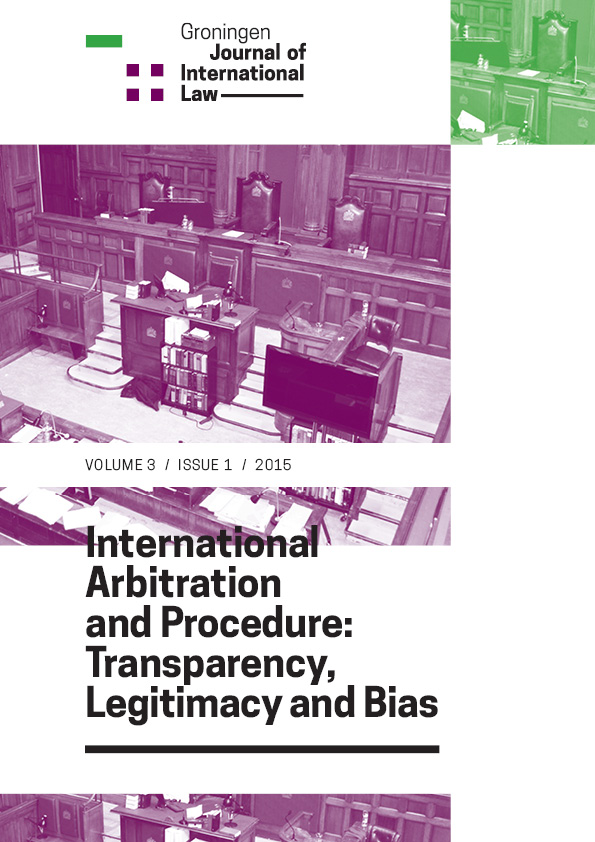Transparency in International Arbitration: Any (Concrete) Need to Codify the Standard?
DOI:
https://doi.org/10.21827/5a86a86689122Keywords:
INVESTOR-STATE ARBITRATION, REFORMS, TRANSPARENCY, LEGITIMACY, HOMESTATES' AMICUS CURIAE SUBMISSIONSAbstract
In the last decades, transparency has become a fundamental principle in international adjudication. It is usually defined as including concepts such as public access and disclosure of documents or information. Due to the high impact of the activities of international institutions on civil societies and the growing relevance of individuals as subjects of the International Community, it became evident that there was a need to: 1. make the decision-making processes of international organisations more transparent; 2. increase the accountability of the international institutions towards civil societies; 3. give access to the public to international dispute settlement mechanisms. For the purpose of this article, the third aspect, ie access to the public to international dispute settlement mechanisms, will considered. In particular, even though reference will be made to other international dispute settlement systems, the practice of international investment and commercial arbitral tribunals will be dealt with. The article will then study the role of transparency in international arbitration, highlighting three main challenges. First, the author will consider the difficult relation between transparency and confidentiality in arbitral proceedings. As this issue is extremely delicate in international commercial arbitration, this practice will be the focus of this section of the article. Second, transparency as a tool to reach a higher level of consistency in international arbitration will be discussed. This is a highly topical issue in international arbitration, as shown by the United Nations Commission on International Trade Law (UNCITRAL) negotiations that led to the adoption in 2014 of the Rules on Transparency in Treatybased Investor-State Arbitration. As a matter of fact, UNCITRAL looked into the issue of amicus curiae briefs provided by the investor’s home State on issue of treaty interpretation, to secure more consistent and harmonised interpretations of standards in investment arbitration. The author will explore whether consistency through transparency is desirable in international arbitration. Third, the paper will deal with the growing tendency to codify standards in international arbitration. This phenomenon is well illustrated by the current negotiations on investment and trade treaties such as the EU-US Transatlantic Trade and Investment Partnership (TTIP) and the EU-Canada Comprehensive Economic and Trade Agreement (CETA) that provide for specific provisions on transparency relating to investor-to-State disputes. The necessity and effectiveness of this codification will be investigated.Published
Issue
Section
Open Access Creative Commons


